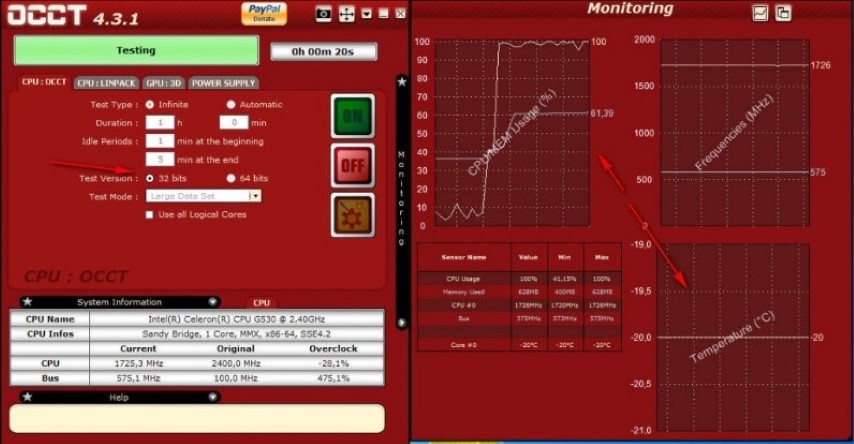
I get into a lot of discussions about overclocking and seem to surprise a lot of people when I mention that I stopped overclocking a few years ago. Their reaction is one of confusion, because all the “YouTubers” have made it seem like overclocking is a must. These days, you can hardly find a build video without someone talking about overclocking. When coolers are mentioned, the overclocking “potential” seems to be a major topic. So, I thought a discussion about why I stopped overclocking was worth writing up.
Overclocking is Expensive
Yes, I know you can do light overclocks without a major cost increase, but light overclocks are for wimps, according to a lot of pundits. One of the things you often hear, is that overclocking is free performance, NOT. To have an overclock you need a few things.
First is the base cost of the components. While you can overclock a reference part, they are often a hit and miss proposition, so serious overlockers’ look for binned components to ensure they can get max overclocks. Plus, just the run of the mill motherboard will not do, you need a motherboard with massive overkill VRMs to handle the that heavy overclock you want to push. For overclocking you will pay more for the same hardware at stock performance.
Also, when you overclock, there is the increased cost of cooling, that a stock cooler or low-cost cooler will not be able to handle. Now you need to spend on a heavy duty cooler to whisk away all that heat.
Time
Next is the matter of time investment. I can build a good quality in about an hour all told. An overclock system means once the base build and OS is done, the tweaking begins. This involves, for a proper, stable overclock; making the setting, testing the setting and rinse and repeat. This can take a lot more time than many people think, and a real stability test of the final overclock can need over an hour to run to ensure proper stability. So now that quick build, and off the gaming can now mean a day or two before you enjoy that new PC.
Stability
This is mentioned above but deserves an extra mention. No matter how stable testing shows your PC to be, there is always a chance of instability being introduced because of an overclock. This is well known, ask any experienced tech. When they look for the cause of a system crash, the FIRST thing an experienced tech does is turn off all overclocks to make it easier to track down the stability issues. This means with an overclock, tracking any PC issues will always involve an extra step in the process.
If we just look at the three points above, you might already have begun questioning if you want to overclock. You spend more money; it takes longer before you can enjoy your build and, places a possible instability into your system but wait there is one more point.
Gains are not worth it.
The simple truth is that for most people a typical overclock does not give enough gain to be worth the extra cost or time. Modern hardware is fast out of the box, even a moderate priced gaming rig can throw a lot of pixels around a screen, letting most games get near 100 FPS at 1080P with moderate to high settings. While adding an extra 10 FPS (a 10% overclock gain is great BTW) might sound like a big deal, the truth is your gaming experience will not change.
There are some arguments to doing overclocking that should be directly addressed.
“I could not afford higher cost parts.” Okay I get this; everyone has budget limitations but the issue with this argument is seldom the parts cost but rather the build expectations. If you wanted to game at 1440P then you should have spent more money on a better GPU. People often build with certain expectations and do not buy toward those expectations. As silly as it sounds you might have saved money buying to expectations instead of overclocking.
“I want my older PC to last a little longer.” This is an argument I can appreciate, wanting to squeeze another couple of months out of your current PC until your budget lets you move into the new system. This is a time when trying a light overclock can make sense. However, do not get into the money trap of doing upgrades to cooling or such, just for that overclock. Ride that older system as long as you can.
“But overclocking is fun.” This is the one point that makes sense to me. There is a joke amongst PC Gamers that for some people their favorite game seems to be 3D Mark. The simple truth is that for some people this is actually true. They are not so much worried about playing games as they are chasing benchmark scores, and that is okay. If you overclock for the joy of overclocking, more power to you.
Now there are moments when overclocking should be considered, but as silly as it sounds it is not by gamers. A friend of mine used to be heavy into the overclocking scene. We had a long discussion about this a few years ago and as a “pro” overclocker he told me; “For gamers overclocking does not make enough impact for it to be meaningful, a few extra FPS might sound nice but does not affect the game play. The REAL place that overclocking shines is in production work.”
His point is valid when you look at the numbers. So, let's say you have achieved a 10% performance gain across the board. (That is a solid everyday use overclock) You might gain some FPS from this, but the overall gaming experience is likely not impact much if at all. However, if you’re doing product work where a render is taking 6 hours to complete, that 10% can mean a 30 minute or potentially more reduction in rendering time and that means you can get more work done. The extra cost and time of that overclock can result in financial gain.
As always, my focus at the end of the day is on the majority of PC Gamers. We care if our games run smooth, are stable and our systems are cool and quiet. Overclocking makes the cool and quieter harder to achieve without an increased cost. Stability is now suspect, and the only possible gain is from smoothing out game play. Something that downscaling techs like FSR and TriXX Boost can do without ANY of the downside of overclocking.
If you a gamer, not an overclocking junkie, save the extra cost and use it for things that will have a larger impact on your gaming experience, or better yet use the cost savings for more games. If you are a benchmark junkie then more power to you, but while you're watching Timespy run for a gazillionth time we will be delving into a dungeon or exploring an unknown sector of some far galaxy.
The articles content, opinions, beliefs and viewpoints expressed in SAPPHIRE NATION are the authors’ own and do not necessarily represent official policy or position of SAPPHIRE Technology.




















